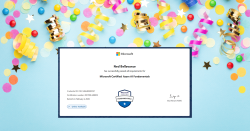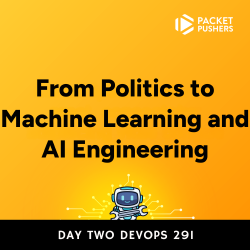


I don’t believe in making New Year’s Resolutions. Or at least, I don’t believe in making the type of New Year’s Resolutions that you might typically think of. A grandiose resolution to achieve an overly ambitious goal in an unrealistic time-frame. Whether it’s resolving to start working out five days a week when you don’t work out at all, or losing 100 lbs. and keeping it off, or finally reading War & Peace. Those are all laudable goals, but setting your sights too high tends to end in failure. As in all things, moderation is key. I think it’s important to have a high-level goal, along with smaller milestones, and achievable tasks.
Let’s take running a marathon as an example. The high-level goal is to run a marathon. But if you just leave your house and try to run without any kind of plan or milestones, you’re probably going to stick with that plan for about a week. You have to set milestones, like being able to run a 5k in one month, a 10k in three months, a half-marathon in six months, etc. Then break those milestones into smaller goals, like run three times a week for the first month. Each of the activities, each run per se, is a task that has a purpose. In week 1 you might set a goal of running for 30 minutes each day, regardless of distance or speed. Breaking a monumental goal, like running a marathon, into something simple - running for 30 minutes - makes the entire process feel realistic. And each time you achieve your tiny goal, you get a sense of accomplishment. And if you track those accomplishments over the course of the high-level goal, you’ll be able to see real progress. Seeing that progress is a true motivator! How do I know? In 2012 I ran my first marathon, and this is exactly how I did it.
All of this is a VERY long-winded way of saying that I don’t believe in typical New Year’s Resolutions. I believe in setting goals, no matter what time of year it is, and creating a realistic plan to achieve those goals. That being said, the end of the year is an especially good time to reflect on what you accomplished in the previous year, and what goals you have in-flight for the next year. Having a well-defined moment in time to pursue internal reflection is necessary to staying on track or updating your plans to accommodate changes to your situation, and I don’t see any reason not to use the changing of the calendar year as such. The following items are goals that I have for 2019. Most of these goals are based on something that is already in-flight - remember, I don’t wait until January 1 to start a new project. I am going to try to provide some actionable tasks for each goal as well as metrics for success. Away we go!
Try and stay positive
That’s a pretty nebulous goal, I have to admit. Why did I even put it here? How does one stay positive? One thing I’ve noticed over the last couple years is that I am growing increasingly negative about the tech world. Being in consulting means that I usually don’t get involved until something is broken or a new product needs to be rolled out that no one understands. New products tend to be buggy, and often the marketing is a little ahead of what the product can actually do. The result is that I get a warped view of technology in production and in theory. Being a podcaster with a weekly tech news podcast also means that I tend to read a lot of stories about tech gone wrong, people in tech behaving badly, or the constant dumpster fire that is security on the web. Once again, I am getting a skewed version of the world, distorted through the lens of what reporters tend to focus on. The end result is that I have found myself becoming increasingly sarcastic, dismissive, and cynical about technology, people, and the world.
There’s a certain level of snark and skepticism that is healthy. And my concern is that I may have overindulged and crossed the line into unhealthy territory. Now I have to work my way back, and I’ve got a plan to do so.
There’s no easy way to measure this, but I’d like to pose one for myself. Put these ideas into practice when writing and podcasting. As I look back on each post, I need to keep a scorecard of how I am doing. That’s not to say that I can’t be critical, snarky, or skeptical. All those things are fine, in moderation. I need to maintain perspective and make sure I am not tearing anyone else down to build myself up. Which leads me to my next goal.
Be kinder
Here’s another goal that is completely vague and hard to measure. The reason it is on the list dovetails nicely with my previous goal. My increased negativity has made me meaner to individuals. And that is in direct violation of one of my three pillars. It doesn’t help that I had some rocky times with coworkers in the past two years. Those bad interactions have led to a certain amount of distrust and negativity about people in general. As a hypothetical example, let’s say that you had a terrible interaction with a used car salesperson. You might end up with a general dislike of all salespeople. That’s not fair to all the good salespeople out there who are trying to do their jobs. I am not saying that I want to be naive or trusting to a fault. But I do need to give people the benefit of the doubt and not cast judgment based on their occupation, company affiliation, or preference for spaces over tabs. Here are a few rules that I need to try and follow in the new year:
My default setting needs to be one of hopeful optimism and mutual respect. If one person lets me down, that doesn’t justify being mean to them. I don’t have to trust them, but I should still be kind about it. Rather than focus my energy on people who I dislike or distrust, instead I need to focus my energy on people who make the world better and brighter. The world is what we make of it, and I’d like to make it better. To that end I would like to help by…
Mentoring someone
Don Jones wrote an intriguing book called Be the Master that I read this summer. I don’t necessarily agree with everything in the book, but there was one thing that made an impression on me.
There’s a perception that you’re not “good enough” to teach until you know everything… you don’t need to be an “expert” in order to share knowledge. -Don Jones
I was invited to be part of a program at work where I would be assigned a mentor, and that mentor would rotate every six months. The idea is that each mentor would be able to assist me in moving forward on my career path, as well as impart wisdom to me on a topic they had expertise in. My mentors are not going to be infallible, omniscient gods. They are going to be mere mortals like me that have more experience in a particular area than I do, and have agreed to take the time to share that experience with me. That’s huge. It’s a commitment of their time above and beyond their regular job responsibilities, all with the focus of improving someone else’s life. I don’t know if they are getting some form of remuneration as part of the program, but I strongly suspect they are all motivated more by paying it forward.
Over my years in the tech industry, I have been immensely lucky to have bosses and coworkers who were willing to take the time and provide guidance and mentorship to me. It’s never been an official program, just awesome people who were willing to spend some of their precious time giving me a boost. Now it’s time to pay it forward. Someone reached out to me on LinkedIn to ask if I would be his mentor. I have to admit that I feel some trepidation about my level of expertise in career development and technology. While reflecting on the possibility, I found Don’s words to be comforting, and help give me the confidence to say ‘yes’. Even if this mentorship doesn’t work out, I would like to formally become a mentor for someone either at work or at large. I expect that the process will be deeply rewarding, and it would help me achieve my goal of being kinder and staying positive.
Produce five new courses
I don’t have a great segue from the last item into this one, so please forgive me. The last three items where externally focused. Goals that I hope will improve the world as a whole. The next few are focused on growing my career. Although, they do have an ancillary effect of helping others. The first item is to produce five new courses, ostensibly for Pluralsight. I have five courses on their site now, of which three were produced entirely in 2018. I really like creating learning content. It’s not all that surprising. My father, sister, wife, and mother-in-law are all teachers. My mother is a librarian. Learning and teaching is in my blood. Choosing to go work in technology made me a bit of an anomaly at family gatherings. No more! In the next year I want to produce five courses for Pluralsight, along with updating the content in some of the existing courses. My first course of the year, Getting Started with HashiCorp Vault, has already been approved and I am currently creating it. Now I just need four more! I’m open to suggestions if anyone has them.
Start a new podcast
I know, you’re thinking, “Ned, you already have two podcasts. Isn’t that enough?!” No, no it isn’t. Here’s the deal. I’ve been approached by Packet Pushers to create a new podcast about the reality of operating IT in the cloud, called Day Two Cloud. This is an opportunity for me to create a podcast not linked to my current employer, have really interesting conversations about cloud technology - my blog is called Ned in the Cloud after all, and make a little pocket change on the side. I’m still working out the details on format, length, and production. I am planning to start recording interviews with guests in January, and launching the podcast sometime in February. The basic premise is around the actual operation of products and services in the cloud. I want to have frank discussions about the original plan for implementing something in the cloud, and then what actually ended up getting rolled out. I want to hear about the challenges, successes, and most importantly the failures. I want to know what were the lessons learned, and things that could have been done differently. The cloud is a rapidly evolving ecosystem, with best practices being changed almost daily. I’d like to separate out the marketecture from the architecture, and see what happens when the cloud stops being polite and starts acting real. If you’re interested in being a guest, hit me up! You can be anonymous if you want. We can change the names of people to protect the innocent or guilty, if you think it might be an issue with your current employer or client. I do want to talk to people who are running real workloads in the cloud, and not the marketing folks from vendor X. They are fine people, but they also have an agenda and a paycheck to worry about.
Blog every week
I’d like to become a better writer. We can consider that the high-level goal behind this one. As part of accomplishing that goal, I want to make sure that I am blogging on a regular basis. If you want to be a better runner, you run more. If you want to be a better musician, you play more. And if you want to be a better writer, you write more. I think it is just that simple. Of course, I also should try and write posts in a way that is more elegant, clear, and concise. I can’t just write crap once a week and expect to get better. I also can’t expect to get better if I don’t write at all. Thus, the goal of this year is a minimum of one post per week.
Get Microsoft MVP award again
I’ve received the Microsoft MVP award for two years running. I’d like to keep up the streak. Access to product teams at Microsoft, Azure credits for testing, and the MSDN subscription are some of the biggest and most tangible benefits. But I also love meeting fellow MVPs and exchanging ideas. My award category is in Azure Stack, and with any luck I’ve participated enough in the Azure Stack community this year that I am awarded again for 2019.
Speak at more events
I’d like to become a better public speaker. We can consider that the high-level goal behind this one. In the same way that blogging every week is going to help make me a better writer, speaking at more events will help make me a better public speaker. In 2018, I spoke at a lot more events than I had in any previous year. That wasn’t an explicit goal for the year, rather it was more of something that I fell into. I started attending the Philly Azure group in the beginning of the year, and soon I ended up being a presenter. My employer started hosting the local AWS user group, and I volunteered to present for that. Then I was asked to be part of a panel on multi-cloud for a joint Philly Azure, Philly AWS, and Philly Google Cloud meetup. At the same time, I was invited to be part of Cloud Field Day three, and the Packet Pushers Virtual Design Clinic. Basically, a lot of things fell into my lap or required minimal effort. I also submitted talks to conferences, so it wasn’t all handed to me. I managed to get talks accepted for SQL Saturday, Microsoft Ignite, and NYC CloudExpo. There were some rejections too, I submitted talks to eight conferences and was only picked to present at three of them. I don’t know if that is high or low, but it did show me that I am not going to be selected every time. I don’t take that as a dis on me. The conference selection committees have to sort through all the submissions and find the talks they think will resonate best with their audience. In 2019, I am going to submit more, submit better, and get rejected more as well.
Learn Go for real
This might seem completely out of left field given all the other goals. Basically it comes down to two key observations. The first is that Go is a super powerful and popular language, and it is used on many of the open source projects I am most interested in. The second is that DevOps and cloud have a lot of cross over, and as someone who has primarily lived on the Ops side of the house I want to expand my horizons into Development. The larger goal is to start contributing to open source projects, and learning a programming language is one way to accomplish that. I attempted to learn Go last year, as I documented in my 2018 review post. That effort was stymied by other projects demanding my attention. This year, I am going to carve out some dedicated time to learn Go. I don’t think it will happen until June. In the meantime, I need to devise some smaller achievable tasks to help me stay motivated about learning Go. In training videos I watched this year, the examples were interesting enough to teach a concept, but I won’t really learn the language until I have a project with tasks. That might end up being contributions to Terraform, or I might try to create my own video game in Go. It has to be something that interests me, and something I will actually be able to do. Once again, I am open to suggestions.
And that’s it. That’s the list for 2019. I do have one other goal for 2019 that I am not ready to share at the moment, but I will when the time is right. In the meantime, I wish everyone a Happy 2019! Go make the world a little better than you found it.
February 4, 2026

January 7, 2026

January 2, 2026

December 30, 2025
